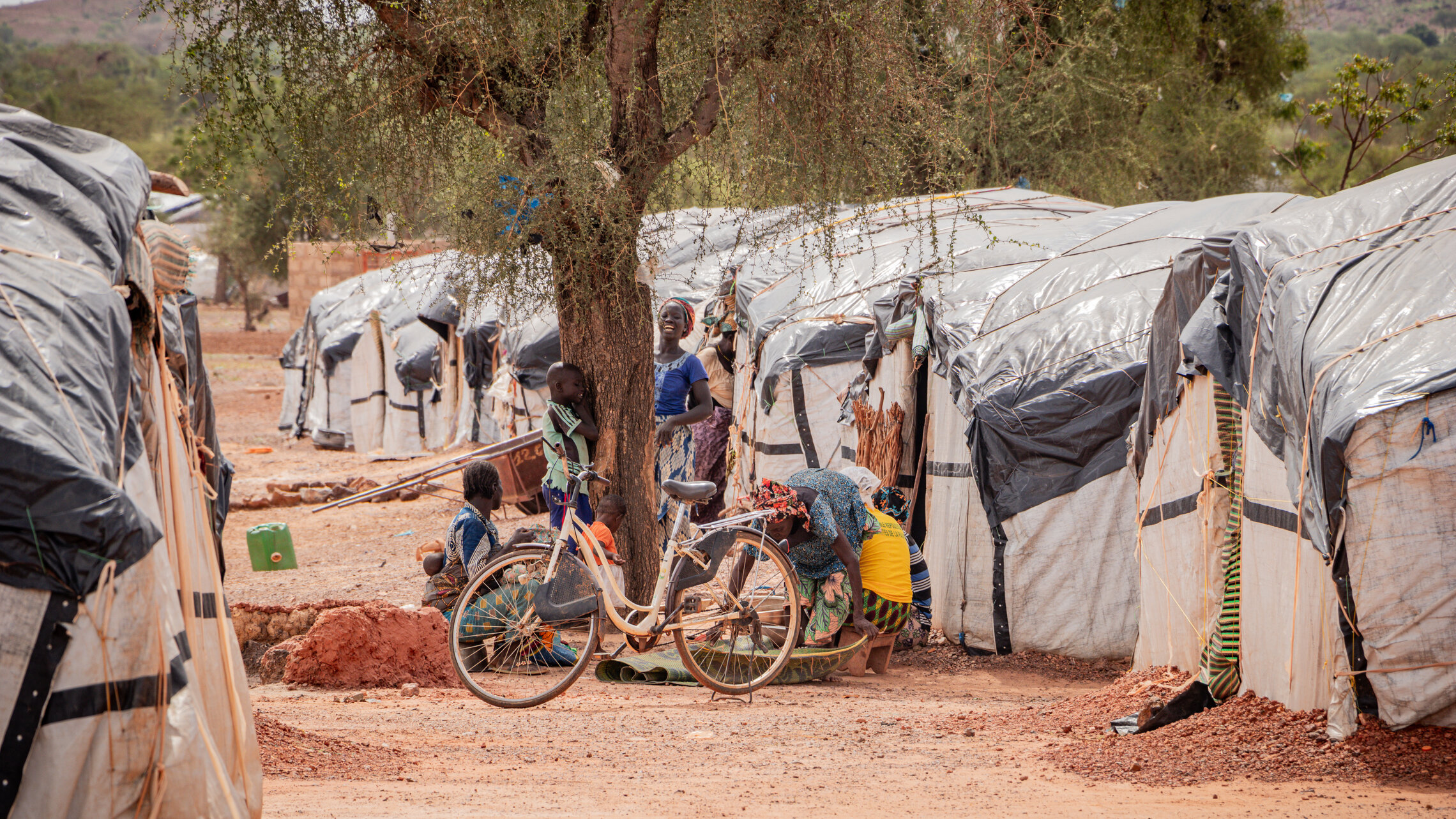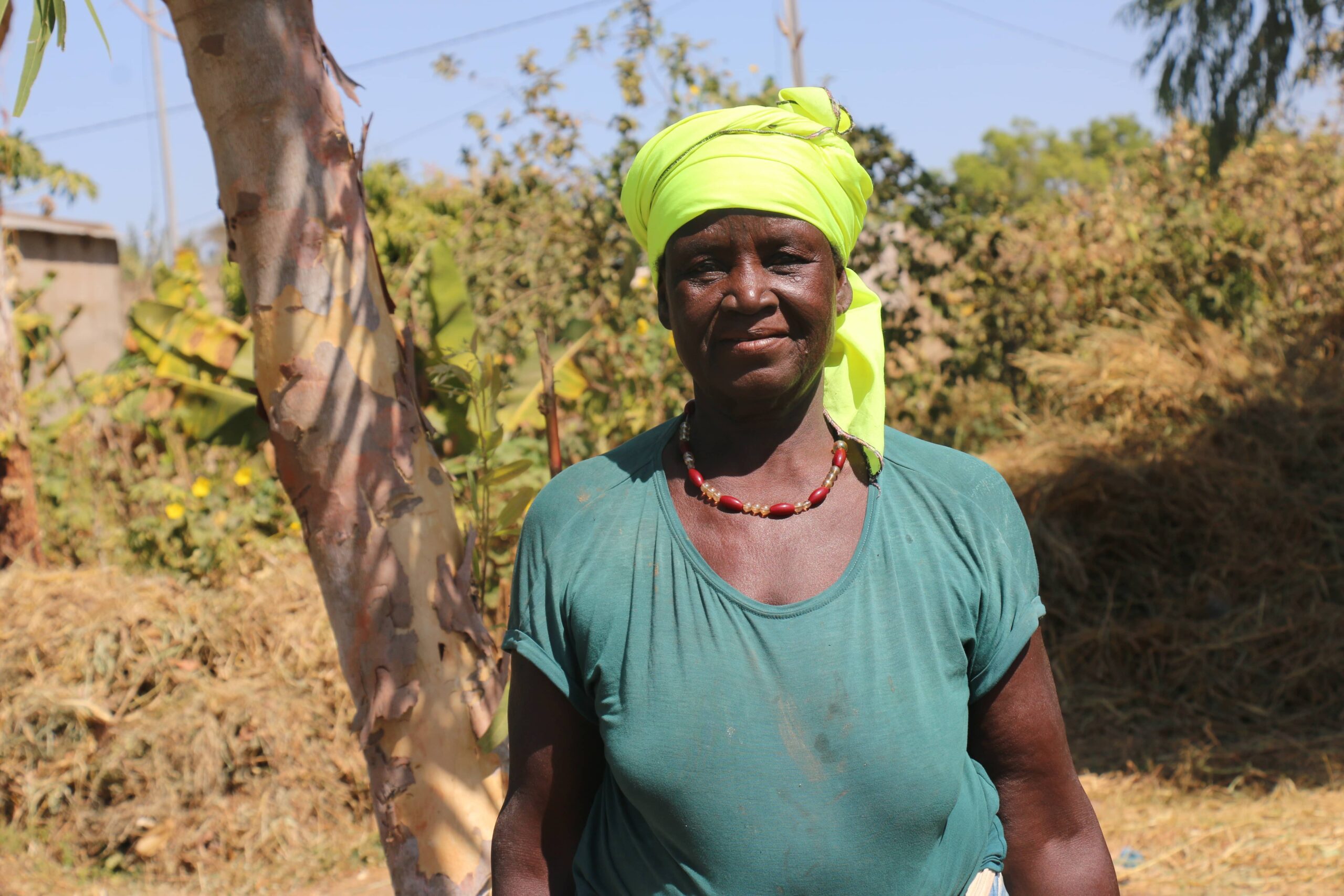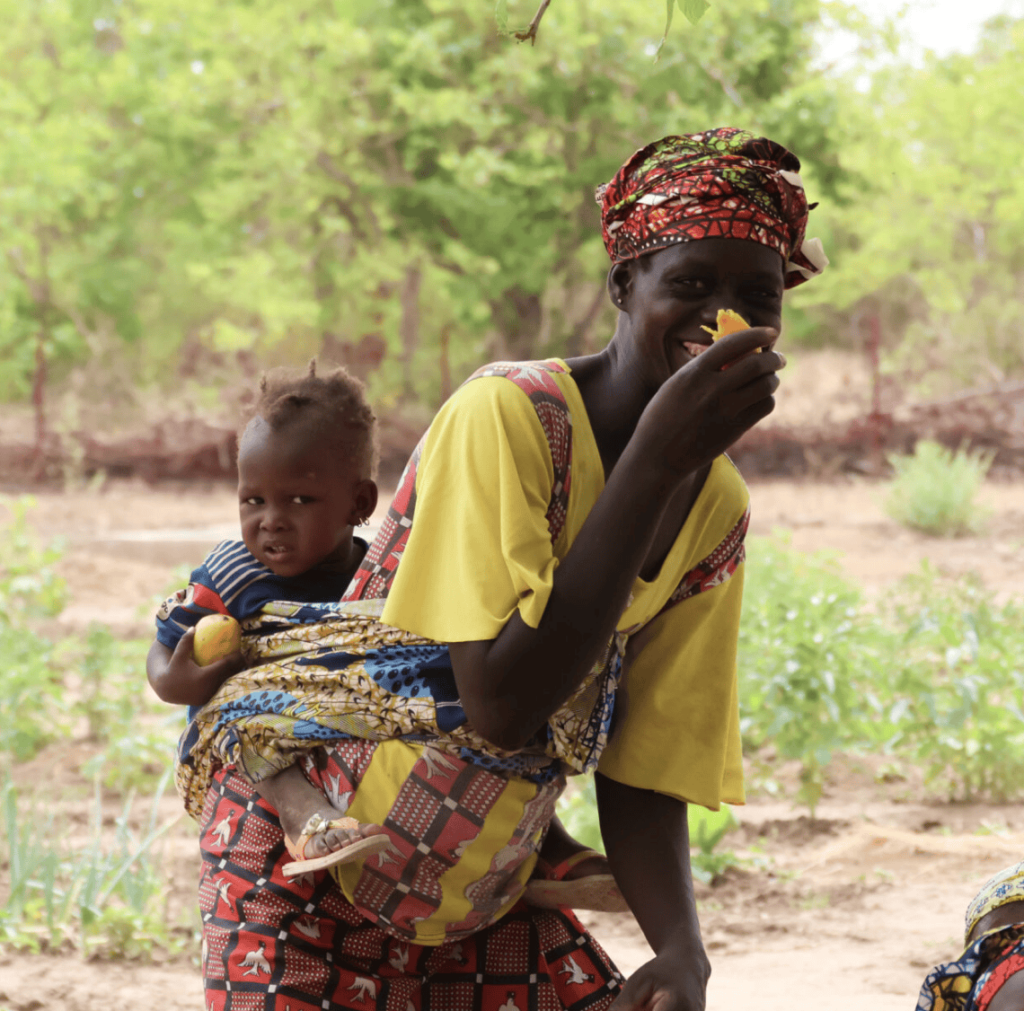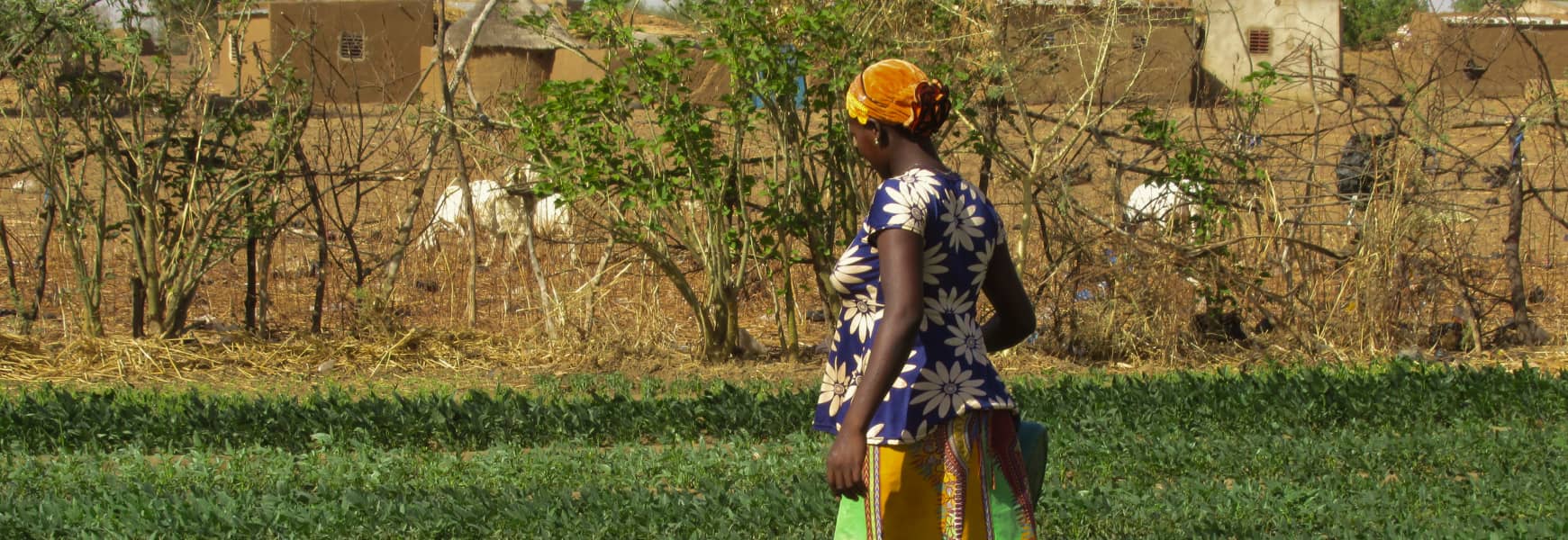Displaced Women Farmers in Burkina Faso: Symbols of Courage Amid Rising Violence
Sixty-four-year-old Tindano Pobarou, a mother of nine (five daughters and four sons), lived a peaceful life in the village of Bassieri. But one night, at 3 AM, she was forced to flee her home as armed groups attacked her village. She and her family crossed multiple dangerous regions with little time to prepare, and life as she knew it was turned upside down. The land she cultivated, the home she built, and the security she once had were gone. Yet, Pobarou refused to give up. She kept crossing the Sahel until she reached a smallholder farmer community in Fada, where our local partner ANSD works.
The crisis in Burkina Faso: a rising tide of violence and displacement
Burkina Faso is facing an unprecedented humanitarian crisis. Over the past decade, escalating terrorist violence has forced more than two million people to flee their homes—about 10% of the population. According to the Norwegian Refugee Council, Burkina Faso is the world’s most neglected crisis, with limited international attention and aid. Armed groups continue to target villages, displacing families and disrupting livelihoods.
This crisis upends the lives of women farmers, stripping them of hard-earned resources, income, and vital community support. In Burkina Faso, where agriculture is a primary livelihood, women are central to food production yet often lack secure land ownership. When violence and displacement strike, they are among the first to lose access to farmland, livestock, and essential tools—severing their ability to provide for their families. Insecurity also fractures social structures that once sustained them, from women’s credit and savings groups to local markets, leaving many isolated and struggling to rebuild.
Without these safety nets, many women face heightened economic insecurity, an increased burden of care for children and elderly family members, and a greater risk of exploitation. Despite these challenges, women like Tindano Pobarou, with nine children to feed and a new home to build, continue to fight for their livelihoods. Pobarou rose through adversity with courage and strength, finding hope and stability in Fada—a tight-knit community where solidarity and local action make all the difference.

Displaced women farmers rebuilding lives through agroecology
Before the attack on her village, Pobarou was already familiar with the local NGO ANSD. ANSD teams had helped her establish two irrigation wells, improving her family’s access to water and food. After fleeing to Fada, she found support from relatives and the Agroecology Committee of Gayéri, which worked alongside ANSD to help displaced women farmers rebuild their lives.
ANSD provided essential farming tools—wheelbarrows, fencing, hoes, and shovels—so women like Pobarou could rebuild their lives and regain independence through agroecological farming.
Pobarou joined a community garden, where she proudly grows tomatoes, onions, and cabbage. The harvests feed her family while allowing her to sell surplus produce, creating a new source of income. Gardening helped her gradually rebuild her dignity, independence, and autonomy.
Determined to secure her family’s future, Pobarou invested her small earnings in livestock. She started with two pigs; today, with her hard work, she owns eight!
Pobarou’s journey is an inspiring example of resilience and adaptation. She could turn challenges into opportunities thanks to ANSD’s support, her new community, and her own courage and determination.
“Pobarou embodies the hope and strength of those who, in the face of adversity, choose to stand up and prosper.“
—Vanessa, ANSD communications coordinator

The power of community and local action in times of crisis
In conflict-affected areas like Burkina Faso, insecurity can severely restrict access to humanitarian aid. Overland transport is often unsafe, and assistance relies on air operations or escorted convoys. In these challenging conditions, our local partners like ANSD are uniquely positioned to provide aid where international actors have limited access. They work closely with communities, understand their needs, and collaborate with local NGO networks to help them build systems that nourish families, generate income, and cultivate autonomy and self-sufficiency, reducing reliance on external aid.
Beyond emergency relief, local action is essential for long-term resilience because it empowers communities to lead their own recovery. While external aid provides immediate support, local initiatives ensure lasting stability. Community-led efforts help displaced individuals rebuild their homes, their livelihoods, and social structures based on solidarity and collective action, creating a foundation for sustainable growth.
How you can help displaced women farmers
Tindano Pobarou’s story is just one of many. Thousands of families in Burkina Faso are facing similar challenges and need urgent support to rebuild their lives – especially with the recent cuts to USAID, preventing millions from accessing vital aid. By contributing to ANSD’s initiatives, you can help provide resources, tools, and training to displaced farmers, allowing them to regain their independence and secure their families’ futures.

Invest in women farmers to spread real solutions
Your gift will directly impact smallholder farmers in the Global South and strengthen their capacity to build regenerative and equitable farming and food systems where people and nature thrive.
About Association Nourrir Sans Détruire (ANSD)
Association Nourrir Sans Détruire (ANSD) strengthens the capacity of local communities, especially women farmers, to lead and manage agroecology programs in Burkina Faso. ANSD also strengthens local markets and incentivizes the adoption of agroecological practices. They seek to improve the well-being of rural families by spreading regenerative farming strategies, empowering women, and increasing food production, income, and family nutrition.
ANSD supports a farmer-to-farmer network that has cascaded effective agroecology strategies, helping women farmers nourish their families, generate income, and organize and grow their voices as community leaders and agroecology influencers.
Learn More: https://ansdbf.org/

